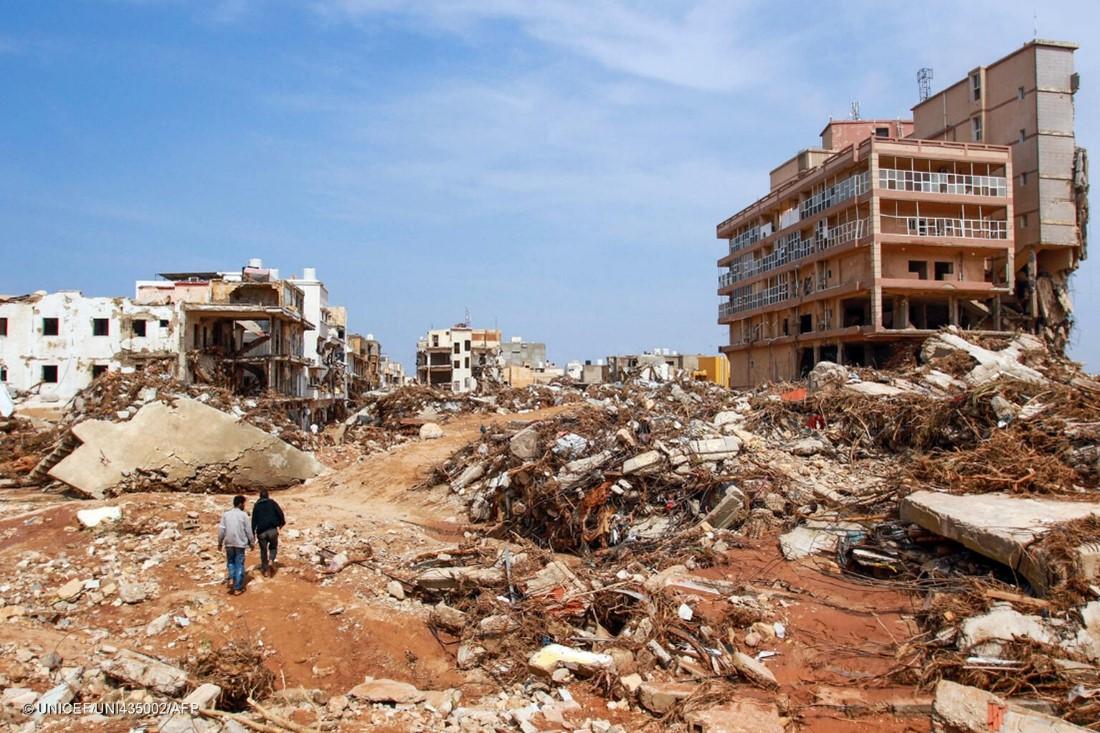Crisis in Libya
Libya’s long-running political crisis along with the September 2023 flooding caused by Storm Daniel have pushed the number of people requiring humanitarian assistance to 580,000. UNICEF is on the ground, working closely with communities to provide life-saving services to children affected by the flooding and the ongoing humanitarian crisis.
The humanitarian situation in Libya
Libya's humanitarian situation remains linked to its complex sociopolitical environment and the enduring conflict since 2011. This ongoing instability has made it difficult for people to access essential public services, particularly health, social protection and education services. Moreover, the situation has placed migrants and asylum seekers at ever-increasing risks to exploitation and trafficking.
The catastrophe of Storm Daniel in September 2023 further exacerbated Libya's humanitarian situation. Northeastern regions of the country experienced intense rains and flash floods, with Derna, Shahat, and Al-Bayada bearing the brunt of the devastation. The storm's aftermath was dire, resulting in significant human casualties and infrastructure damage.

Help UNICEF provide life-saving support to children in emergencies
UNICEF’s response to the Libya crisis
UNICEF is committed to providing immediate life-saving support in Libya, especially to individuals affected by Storm Daniel, internally displaced persons, refugees, and migrants.
We are focusing our humanitarian response on areas such as preparing for conflict or climate-related displacement and disease outbreaks, supporting children on the move, and addressing remaining humanitarian needs of the areas affected by Storm Daniel.
We are working in communities across Libya, creating partnerships with local stakeholders to enhance their ability to offer balanced, high-quality, gender-informed assistance.
In 2023, UNICEF with the help of our donors and partners have:
- Provided essential health supplies and services for 390,000 people;
- Established mother support groups in 64 municipalities, reaching over 43,000 mothers with Infant and Young Child Feeding (IYCF) practices;
- Supported over 79,000 children, parents and caregivers with community-based mental health and psychosocial support services;
- Distributed water purification tablets and hygiene kits to over 53,000 individuals and rehabilitated five boreholes benefiting 50,000 residents in Derna, Shahat, and Albayda.
